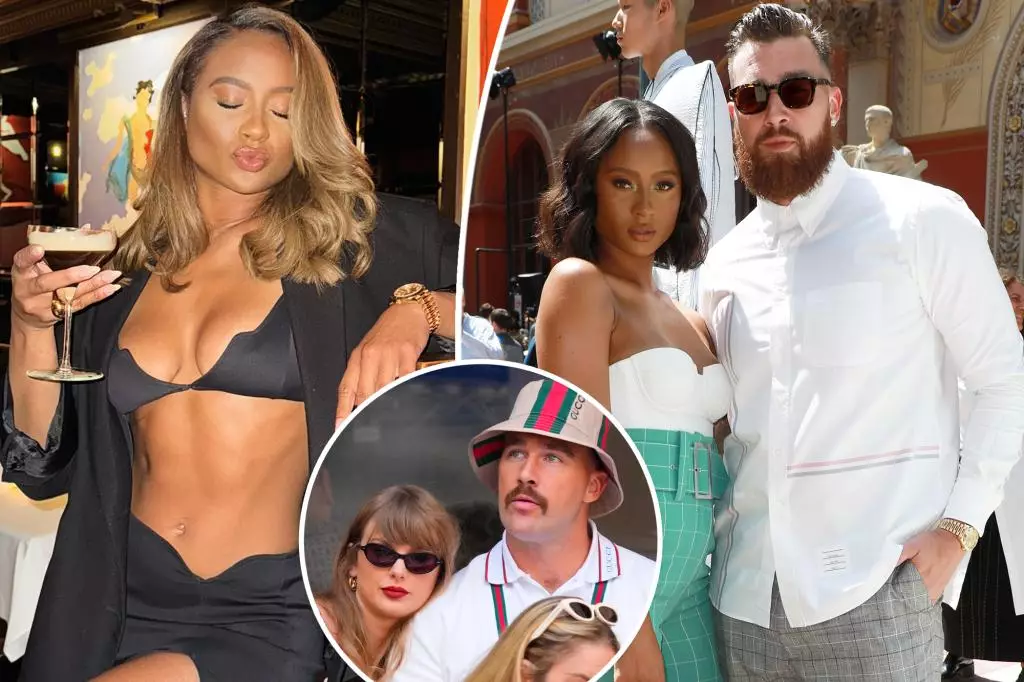In the age of social media, celebrities routinely find themselves vulnerable to public scrutiny. For Kayla Nicole, the ex-girlfriend of NFL star Travis Kelce, this reality became starkly apparent following the highly publicized romance between Kelce and pop sensation Taylor Swift. The fallout from this relationship has resulted in merciless online trolling directed at Nicole, highlighting broader societal issues regarding beauty standards, misogyny, and the toxic culture of online discourse.
Recently, Kayla Nicole faced ridicule after unfiltered images of her without makeup surfaced on a fan page dedicated to showcasing the workings of celebrity lives. A Twitter user, seemingly entrenched in the ongoing rivalry between fan bases, sarcastically commented on her looks, with a dismissive puking emoji. This moment of online harassment ignited a passionate response from Nicole, who retweeted the post with the empowering declaration, “YOU WILL NEVER MAKE ME HATE ME.” These words not only serve as a reflection of her resilience but also highlight the emotional toll excessive online negativity can inflict.
It’s imperative to recognize that Nicole is more than just a figure in a celebrity relationship; she is a broadcaster and an influencer with her own brand and audience. After experiencing nearly constant online hate since Kelce’s relationship with Swift became public, the Tribe Therepe founder issued an open letter addressing Black women. In her message, she spoke candidly about the backlash and the emotional burden associated with being the subject of public disdain.
Nicole urged her followers to avoid engaging with hate—a powerful reminder of the strength found in silence. “Preserve your heart even when they try to quantify your character and test your boundaries,” she stated. These sentiments reflect a critical narrative that counters the often one-sided and toxic nature of social media interactions, emphasizing individual worth over public perception.
The dynamics surrounding social media often lead to the vilification of individuals involved in high-profile relationships, and Nicole’s experience is a case in point. In a TikTok video, she alluded to the “keyboard warriors” who harass her from the anonymity of their screens, suggesting that they consider stepping back from their vitriolic behaviors. With every public appearance and social media post, Nicole confronts not only the challenges associated with her past relationship but also the larger cultural implications of how women are treated online.
In a subsequent social media update, she reiterated her commitment to remaining “unproblematic,” indicating her desire to navigate her public image without responding to unfounded criticism. By refusing to give in to negativity, Nicole serves as an inspiring figure for others who may be grappling with their own battles against cyberbullying.
As Kayla Nicole continues to maneuver the complexities of life in the public eye, her experiences shine a light on the broader discourse surrounding beauty, dignity, and the bounds of social media engagement. Balancing personal resilience with public scrutiny, she exemplifies the fight against unwarranted judgments. Through her responses to the hate she faces, Nicole encourages a powerful narrative of self-love and self-preservation, reminding us all that there’s strength in maintaining one’s dignity—especially in the face of relentless negativity.


Leave a Reply